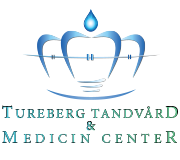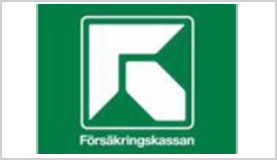TMJ DYSFUNCTION
TMJ refers to the temporomandibular joint that is the bone structure, muscles and connective tissues which surround the jaw and control chewing. Symptoms of TMJ Dysfunction include pain and tenderness near the jaw, as well as popping or clicking in the joint when speaking or chewing. There are many ways of treating TMJ disorders in Kensington Health Clinic, ranging from non-invasive therapy and bite splints to injections or surgery. If left untreated, TMJ disorders can lead to headaches, muscle pain, malocclusion and tooth damage from grinding or clenching.
Signs And Symptoms For TMJ Dysfunction:
- Pain in your jaw when opening and closing your mouth
- The jaw feeling ‘locked’ in place and not being able to fully open your mouth
- Issues with your bite, or discomfort when chewing
- Headaches or earache
Reasons For TMJ Dysfunction?
There are many reasons why you might experience a disorder in your temporomandibular joint, including:
- Grinding or clenching your teeth
- General wear and tear to the joint, which can occur over time
- Suffering an injury to the area
- Tightened facial or jaw muscles due to stress
- Arthritis in the joint
The treatment for TMJ Dysfunction will depend on your individual requirements; however, your dentist will be able to recommend the best course of action suited to your needs.
After your initial consultation, your dentist will be able to determine whether the cause of your discomfort is due to the muscle that supports your joint, or the joint itself.
Some common treatments that your dentist may recommend include specialised exercises, orthodontics, reconstructive dentistry, the use of mouthguards, or even lifestyle changes such as reducing stress and resting the jaw joint.
Get in touch today to discuss how we can assist to relieve the symptoms of TMJ Dysfunction.
TMJ DYSFUNCTION
TMJ refers to the temporomandibular joint that is the bone structure, muscles and connective tissues which surround the jaw and control chewing. Symptoms of TMJ Dysfunction include pain and tenderness near the jaw, as well as popping or clicking in the joint when speaking or chewing. There are many ways of treating TMJ disorders in Tureberg Tandvård & Medicin Center, ranging from non-invasive therapy and bite splints to injections or surgery. If left untreated, TMJ disorders can lead to headaches, muscle pain, malocclusion and tooth damage from grinding or clenching.
Signs And Symptoms For TMJ Dysfunction:
- Pain in your jaw when opening and closing your mouth
- The jaw feeling ‘locked’ in place and not being able to fully open your mouth
- Issues with your bite, or discomfort when chewing
- Headaches or earache
Reasons For TMJ Dysfunction?
There are many reasons why you might experience a disorder in your temporomandibular joint, including:
- Grinding or clenching your teeth
- General wear and tear to the joint, which can occur over time
- Suffering an injury to the area
- Tightened facial or jaw muscles due to stress
- Arthritis in the joint
The treatment for TMJ Dysfunction will depend on your individual requirements; however, your dentist will be able to recommend the best course of action suited to your needs.
After your initial consultation, your dentist will be able to determine whether the cause of your discomfort is due to the muscle that supports your joint, or the joint itself.
Some common treatments that your dentist may recommend include specialised exercises, orthodontics, reconstructive dentistry, the use of mouthguards, or even lifestyle changes such as reducing stress and resting the jaw joint.
Get in touch today to discuss how we can assist to relieve the symptoms of TMJ Dysfunction.
Services We Offer
at Tureberg Tandvård & Medicin Center
Opening Hours
Monday 09.00 – 18.00
Tuesday 09.00 – 18.00
Wednesday 09.00 – 18.00
Thursday 09.00 – 18.00
Friday 09.00 – 18.00
Saturday 09.00 – 18.00
Evening & weekend appointments available by prior arrangements only
Tureberg Tandvård & Medicin Center
Dental & Aesthetic Medical Centre
Anhaltsvägen 23,
191 40 Sollentuna
T: 070 939 7441
T: 087544248












































